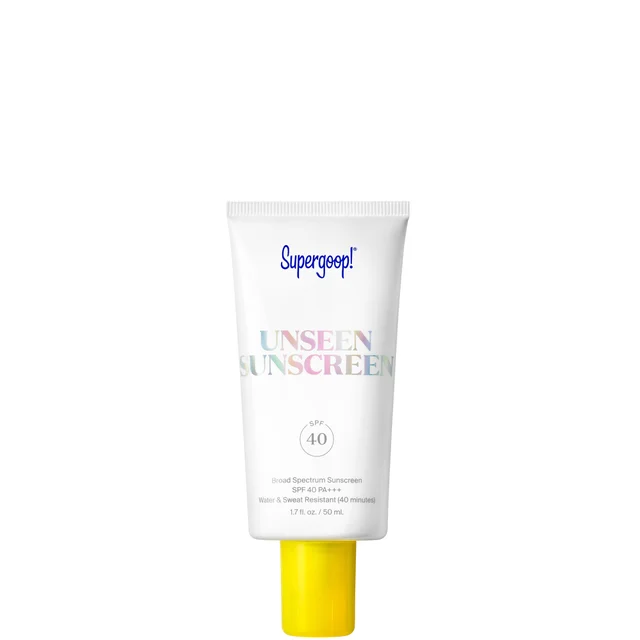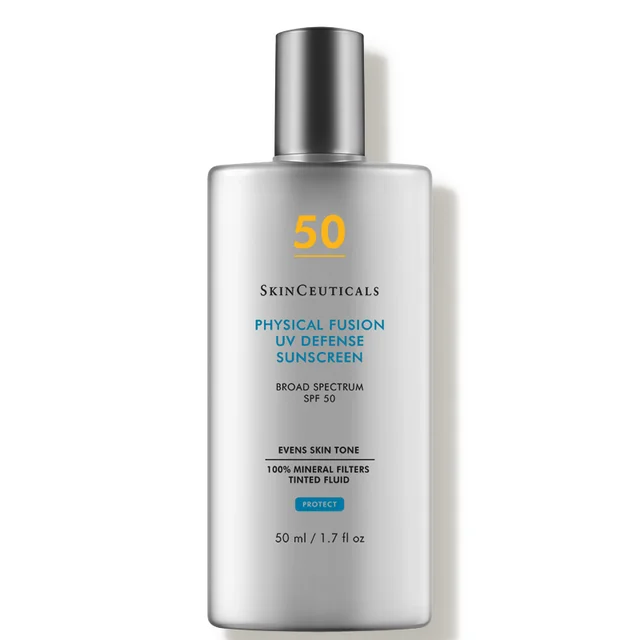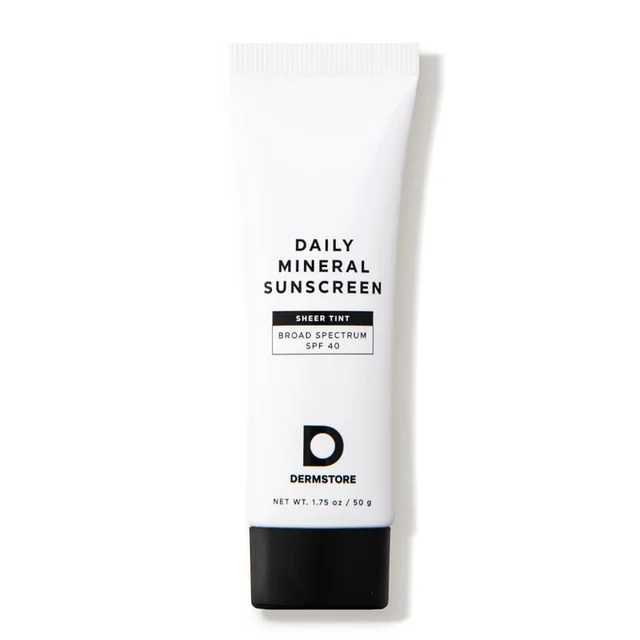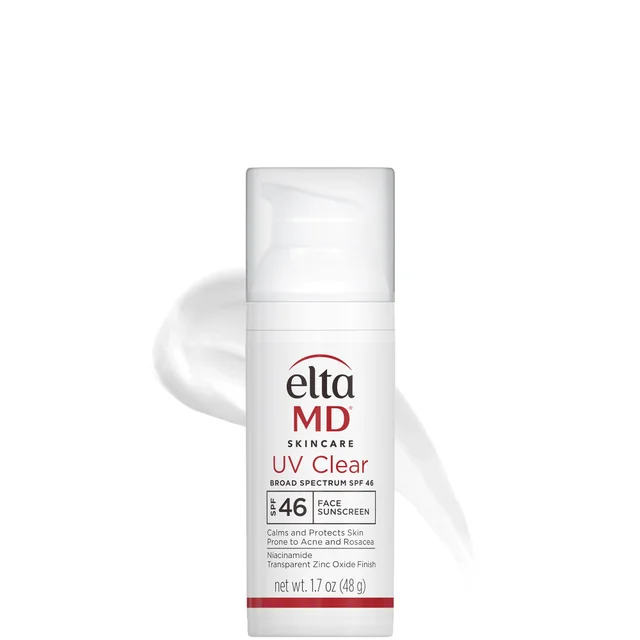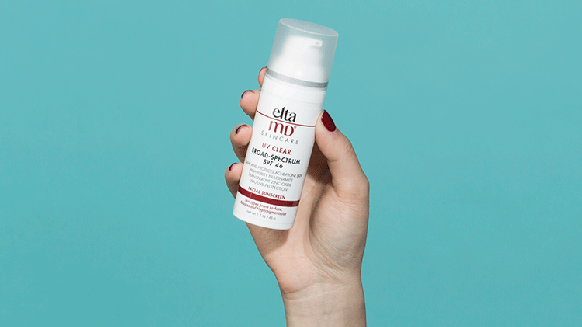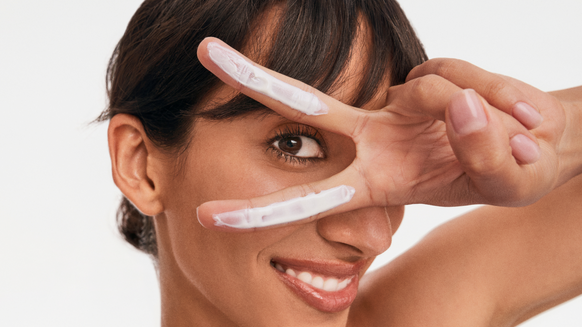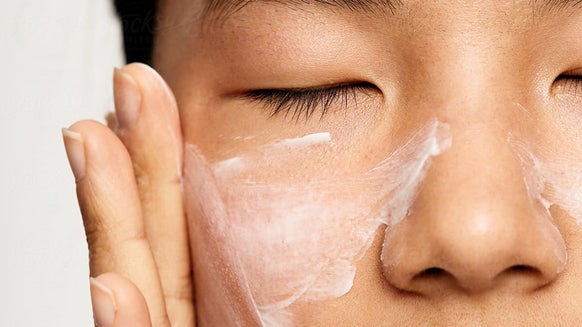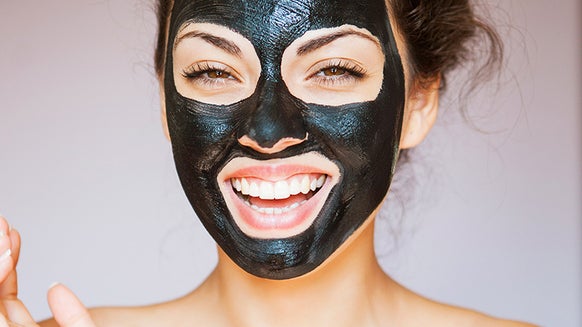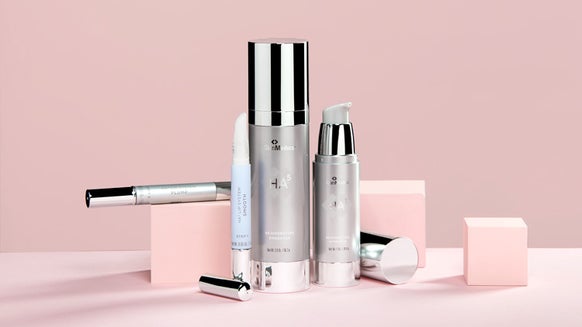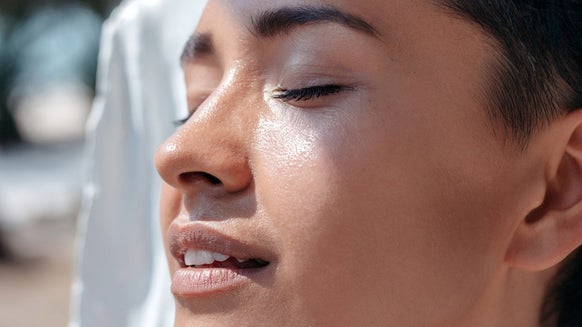We Bet You Still Believe at Least One of These Sunscreen Myths
Sunscreen: Apply it every morning and…that’s it, right? Nope, not really. For something as seemingly basic as SPF, there’s a surprising amount of misinformation and confusion around formulas, coverage and efficacy. But considering sunscreen is the best defense against lines, wrinkles, discoloration and skin cancer, it’s something you absolutely don’t want to get wrong. So, let’s clear up some of sunscreen’s biggest myths, shall we?
- MYTH: Deep skin tones don’t need sunscreen.
“Medium-to-deep skin tones have a natural SPF of 8 to 13, but you need SPF 30 to 50 for adequate protection,” says Dr. Cheri Frey, a board-certified dermatologist based in Maryland. “Brown skin can still develop skin cancer—even if the rate is lower—and is just as prone to premature aging, degradation of collagen and hyperpigmentation.” Basically, your melanin alone won’t cut it.
- MYTH: The SPF in your makeup is probably good enough.
Sorry, but not even close. Not only are you supposed to apply half a teaspoon of at least SPF 30 to your face every single day for adequate coverage (which, trust me, is a lot more than it sounds, and definitely more than the average person uses), but “most makeup has a max SPF of 15, which isn’t nearly high enough to protect you,” says Dr. Frey. So, unless you’re caking on five layers of foundation, you won’t come close to that SPF 15.
MYTH: You don’t really need sunscreen indoors.
Sure, maybe that was the case 100 years ago—but now? “The blue light that’s emitted from our computers and smartphones contributes to melasma, fine lines and hyperpigmentation,” says Dr. Frey. And while your windows do a pretty good job at filtering out UVB rays (the sunburn-causing kind), they’re not great at blocking out UVA rays (the damage- and cancer-causing kind). Your best bet is a mineral sunscreen, since it acts as a physical barrier against both types of rays. One fav? UNSUN Mineral Tinted Sunscreen SPF 30, which acts as a tinted moisturizer and SPF all in one.
- MYTH: There’s no right or wrong sunscreen.
To be clear, the best sunscreen is the one that you’ll actually wear every single day, since “any SPF is better than none,” says Dr. Frey. But if you’ve got specific skin issues you’re trying to mitigate, you’ll want to grab the right type. “Chemical sunscreen works by absorbing and breaking down the UV rays, while mineral sunscreens work by physically blocking those UV rays,” she says.
Generally, mineral sunscreens offer the best and broadest protection and are better for sensitive skin and melasma. The downside? They tend to leave a white cast that can look especially obvious on dark skin tones. Chemical sunscreens, on the other hand, tend to be lighter and sheerer, so they play well with all skin tones and layer well under products.
If you do choose a physical sunscreen, look for one that’s either tinted or sheer, like EltaMD UV Elements Broad-Spectrum SPF 44, then wait at least 10 minutes after applying it before adding your makeup (which is usually enough time for that white cast to disappear). Looking for a chemical formula? Try the cult-favorite Supergoop! Unseen Sunscreen SPF 40, which really does look and feel like nothing on your skin.

From the latest hair and makeup trends to the best solutions for your skin issues, we've got all your beauty concerns covered!

